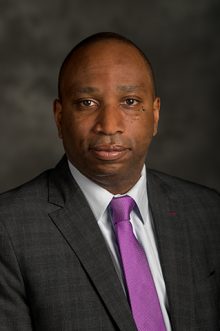City to Explore Social Procurement in COVID-19 Recovery Effort
March 25, 2021By Councillor King Rawlson
As part of the City of Ottawa’s COVID-19 economic recovery efforts, the City Council voted in favour of a motion asking the City’s Chief Procurement Officer to identify opportunities to include and encourage the City’s use of social procurement projects and social enterprises in City procurement.
The motion, introduced by Councillor Laura Dudas, asked the Chief Procurement Officer to work in close collaboration with City Economic Development Committee, Community and Social Services Department, Human Needs Taskforce, Invest Ottawa, as well as community stakeholders, such as the United Way East Ontario and Community Foundation Ottawa, Buy Social Canada and others with the intent of ensuring that citizen-led economic efforts, local social procurement capacity building and job creation initiatives are included in the City’s overall recovery strategy.
I was extremely pleased that City staff was given this direction as social procurement opportunities have the potential to address economic disadvantage, discrimination, and other barriers to equal opportunity. This includes those distant from the labour market, such as youth experiencing vulnerabilities, and those from equity-deserving communities who have historically faced discrimination preventing equitable access to economic opportunities.

Rawlson King, Ottawa City Councillor for Rideau-Rockcliffe.
Consequently, to ensure the development of the most effective social procurement procedures, I presented an additional direction to the Chief Procurement Officer at Council on February 10 which was accepted by my Council colleagues and requested that staff:
- Develop an approach which increases the diversity of the City’s supply chain by providing diverse suppliers with equitable access to competitive City procurement processes, especially from the most disadvantaged groups, including racialized and Indigenous entrepreneurs; and
- That staff explore the potential to increase the number of employment, apprenticeship and training opportunities leveraged for people experiencing economic disadvantage, including those from equity-seeking communities including Aboriginal People, Racialized groups/visible minorities, Persons with disabilities, Newcomers / new immigrants, Women and LGBTQ+ people
Being elected Ottawa’s first-ever Black city Councillor, I believe it is necessary to work on issues of significance to racialized communities, especially the creation and development of economic opportunities. For example, while undertaking community consultation and action planning for the newly created Anti-Racism Secretariat at the City of Ottawa, Black, racialized, Indigenous and religious groups expressed their needs regarding employment and economic development. Their demands include:
- Increasing employment and training opportunities at the City of Ottawa.
- Providing mentorship programs as a pathway to employment for racialized people.
- Improving access to high-quality training and employment programs.
- Supporting businesses through development of social procurement policies at the City.
I believe the motion and my direction at Council will help facilitate changes to address these concerns. I also believe that the social procurement motion complements work undertaken by the City’s new Anti-Racism Secretariat.
Over the last year and a half, the City has moved rapidly to implement new Anti-Racism measures. This included securing funds in the 2020 City budget to create an Anti-Racism Secretariat to address systemic racism in our community and within the City as an organization. The Anti-Racism Secretariat will focus on addressing systemic racism and racial barriers in the City’s policies, strategies, services and workplaces.
The Anti-Racism Secretariat will align with the work of the City of Ottawa’s Women and Gender Equity Strategy and the Municipal Reconciliation Action Plan focusing on common key pillars, including: i) service delivery and policy review (systems change); ii) awareness and education (training); and iii) representation (structural change).
The Secretariat will ensure an Anti-Racism lens is applied to the policies the City develops, so the decisions the City makes and the services it provides are delivered to all residents equitably. It will also work to ensure meaningful strategies concerning employment equity and economic development are developed in order to level the playing field.
Rawlson King is Ottawa City Councillor for Rideau-Rockcliffe (Ward 13) and Council Liaison for Anti-Racism and Ethnocultural Relations Initiatives.


 The OLIP Council is committed to leadership. In only a few years, we have a common vision and priorities, and are up to the task of implementing the Ottawa Immigration Strategy.
The OLIP Council is committed to leadership. In only a few years, we have a common vision and priorities, and are up to the task of implementing the Ottawa Immigration Strategy.

